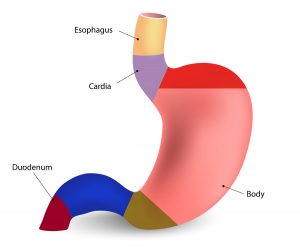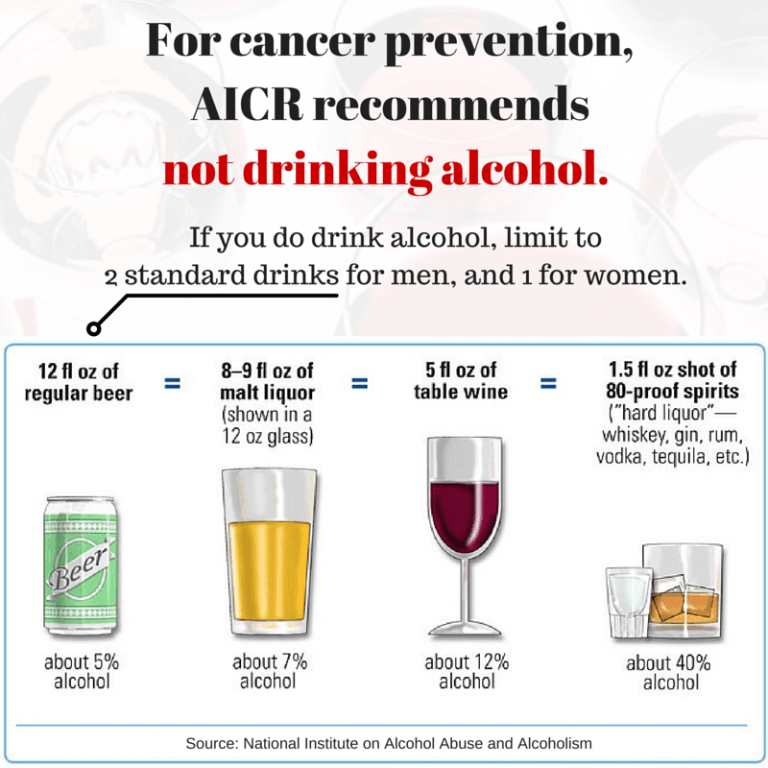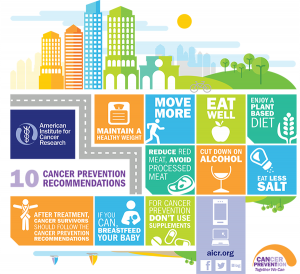We’ve just released our latest systematic review of the global literature linking diet, weight and physical activity to an individual cancer; this time, it’s stomach cancer in the spotlight, and there’s some striking news.
The report’s three major findings – that alcohol, processed meat and obesity increase the risk for stomach cancers – are entirely new. Much of the research makes important distinctions that previous research didn’t, and there’s more to know about stomach cancer risk than easily fits into a headline. Here, we answer questions about some of the nuances that have emerged.
Two of these three new risk factors apply to distinct types of stomach cancer, cardia and non-cardia. What’s the difference?
Stomach cancer is actually an umbrella term encompassing lots of different subtypes.

The two main types are classified according to the part of the stomach where the cancer starts: cardia and non-cardia. They appear to have different causes.
The cardia region is the top of the stomach, where it joins the esophagus. Cancer that develops here is called cardia stomach cancer. The non-cardia region is the lower area of the stomach, so non-cardia stomach cancer means a tumour in the lower part of the stomach.
Non-cardia stomach cancer is more common in Asia and is associated with Helicobacter pylori bacterial infection.
The link with processed meat is new and that shows effects on one type, correct?
Processed meat increases the risk for non-cardia stomach cancer, but there is no association with cardia stomach cancer
Why would a daily hot dog increase a person’s risk of this cancer type?
Non-cardia stomach cancers, which occur in the lower part of the stomach, can happen because the stomach can hold food for up to five hours during digestion, exposing the stomach lining to carcinogens present in some foods.
It could be that the preservatives added to processed meats, such as nitrates and nitrites, can react with the meat during digestion to form carcinogenic N-nitrosamines. These damage the stomach lining and cause lesions, which can lead to cancer.
And being overweight increases the risk of cardia stomach cancer, but there is no association with non-cardia cancer?
Cardia stomach cancer is thought to be mainly caused by damage to cells at the top of the stomach by the acid associated with gastroesophageal reflux disease (GERD). Being overweight or obese makes GERD more likely.
Having 3 or more alcoholic drinks a day applies to both cancer types. Why would alcohol increase risk?
There are a number of reasons why alcohol can increase the risk of stomach cancer. Alcohol is metabolized into acetaldehyde, which is a carcinogen. It also causes damage to cells (through oxidative stress, which occurs when there are not enough antioxidants to neutralise metabolic damage) and can interfere with cell growth and the cell life cycle, which predisposes cancer. Alcohol also makes it easier for other carcinogens, such as from tobacco, to enter the cells.
 The finding with alcohol applies to men and women?
The finding with alcohol applies to men and women?
Yes. But the risk is most apparent in men, as well as smokers and ex-smokers.
The 2007 report said that salt was a cause of stomach cancer; today’s report shows that this evidence is now weaker. Yet it does say that “foods preserved by salting” are a cause of stomach cancer. Clarify?
The report found strong evidence that certain salt preserved foods are a cause of stomach cancer: foods preserved by salting such as meat and fish, and salt-preserved vegetables. Research showed that the more people eat of these foods the greater their chance of developing stomach cancer.
The evidence on these foods comes primarily from studies conducted in Asia, particularly Japan and Korea. Many of the traditional foods in these countries are preserved by salting and fermentation.
How might salt-preserved foods increase the risk of stomach cancer?
Experimental research has shown that salt damages the stomach lining and causes lesions, which, if left to develop, can become stomach cancer.
Infection with H. Pylori bacteria also damages the stomach lining, and is made worse in the presence of salt. H. pylori infection is relatively common in parts of Asia and is also an independent cause of stomach cancer.
 Yet limiting salt intake still remains an AICR Recommendation for Cancer Prevention?
Yet limiting salt intake still remains an AICR Recommendation for Cancer Prevention?
The evidence on salt in the Western diet is now inconclusive – this could be because of difficulties in measuring total salt. Evidence on total salt intake, from studies worldwide, didn’t show a strong link with stomach cancer.
A diet in high-sodium foods is not a great idea, but more research needs to be done to examine the impact of the kind of high-salt foods commonly eaten in the West. The 2015 Dietary Guidelines recommend Americans consume less than 2,300 milligrams of salt per day, and AICR recommends limiting the salty foods in your diet.






Alcohol cause of risk to Liver cancer.
Processed meat is not a fresh meat rather it is preserved in some ways. It highly contains salt, fat and provides very less nutrients as compared to white meat. Eating red and processed meat in a large amount increases the risk of Cancer. Processed meat increases the risk of bowel and stomach Cancer.